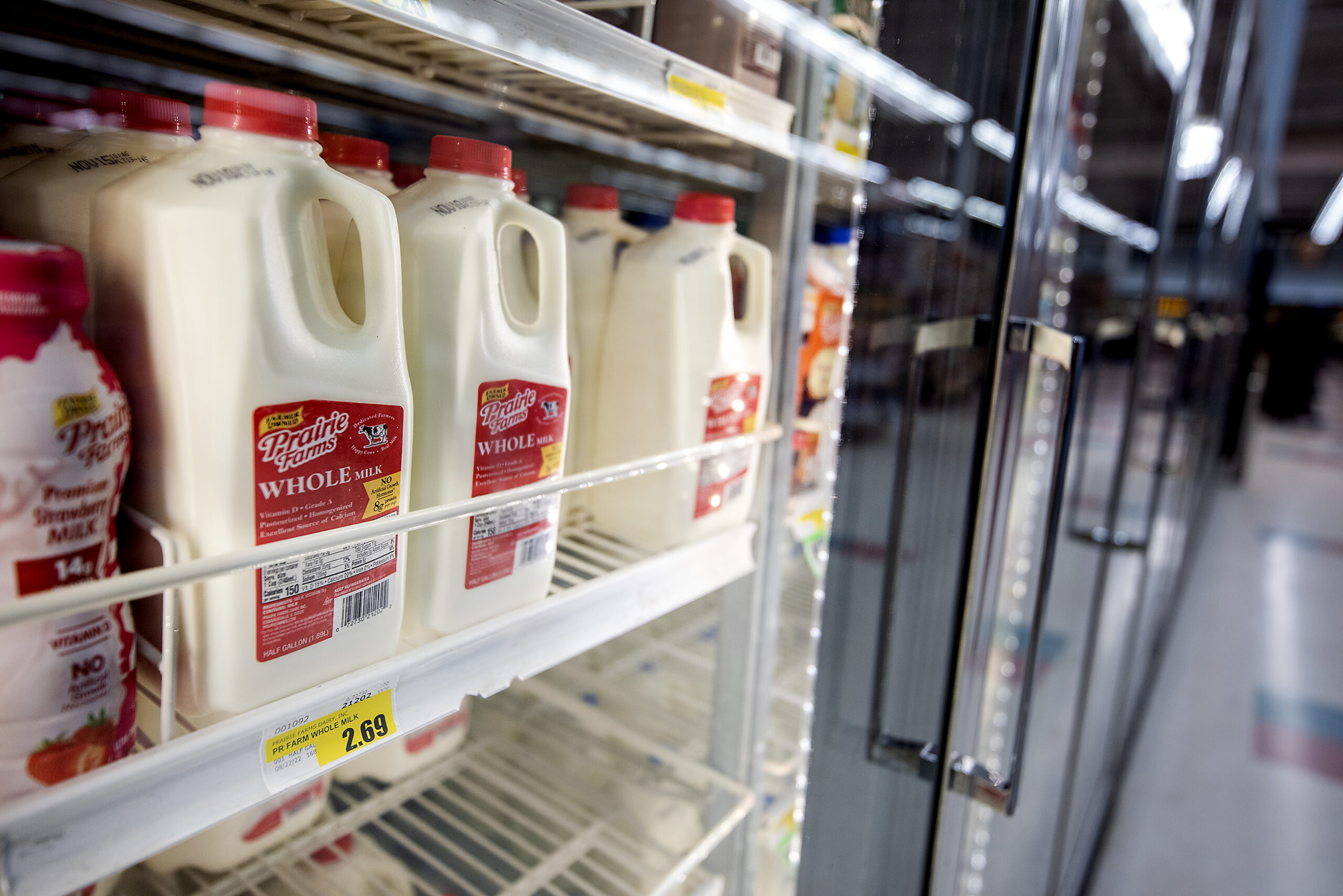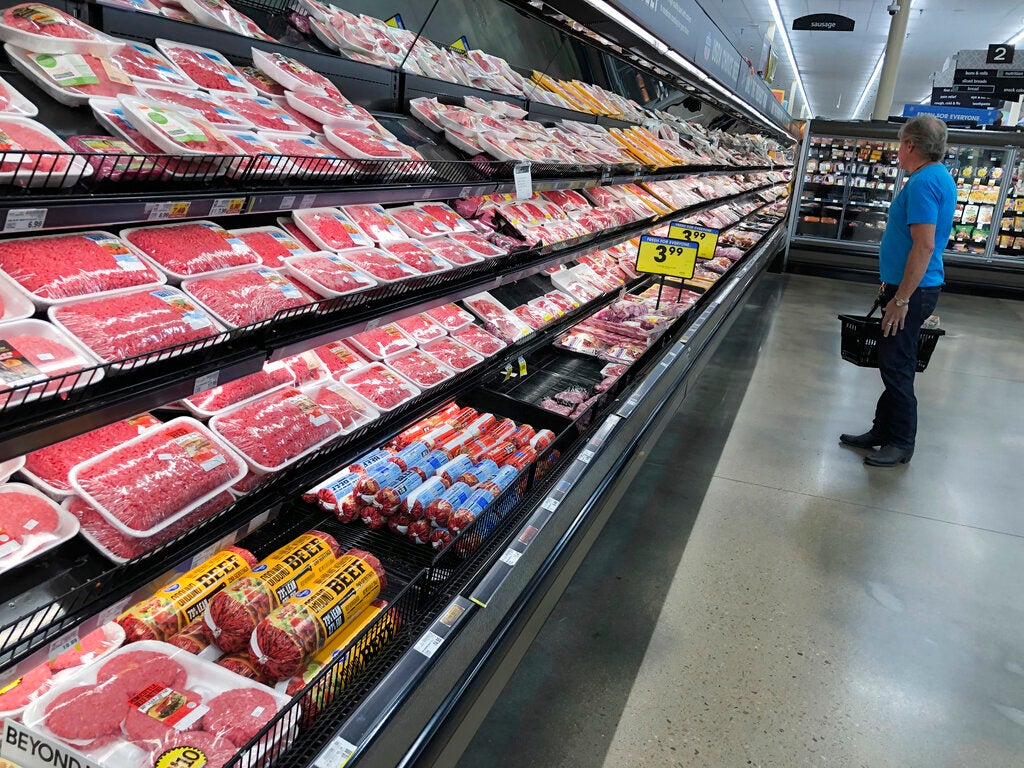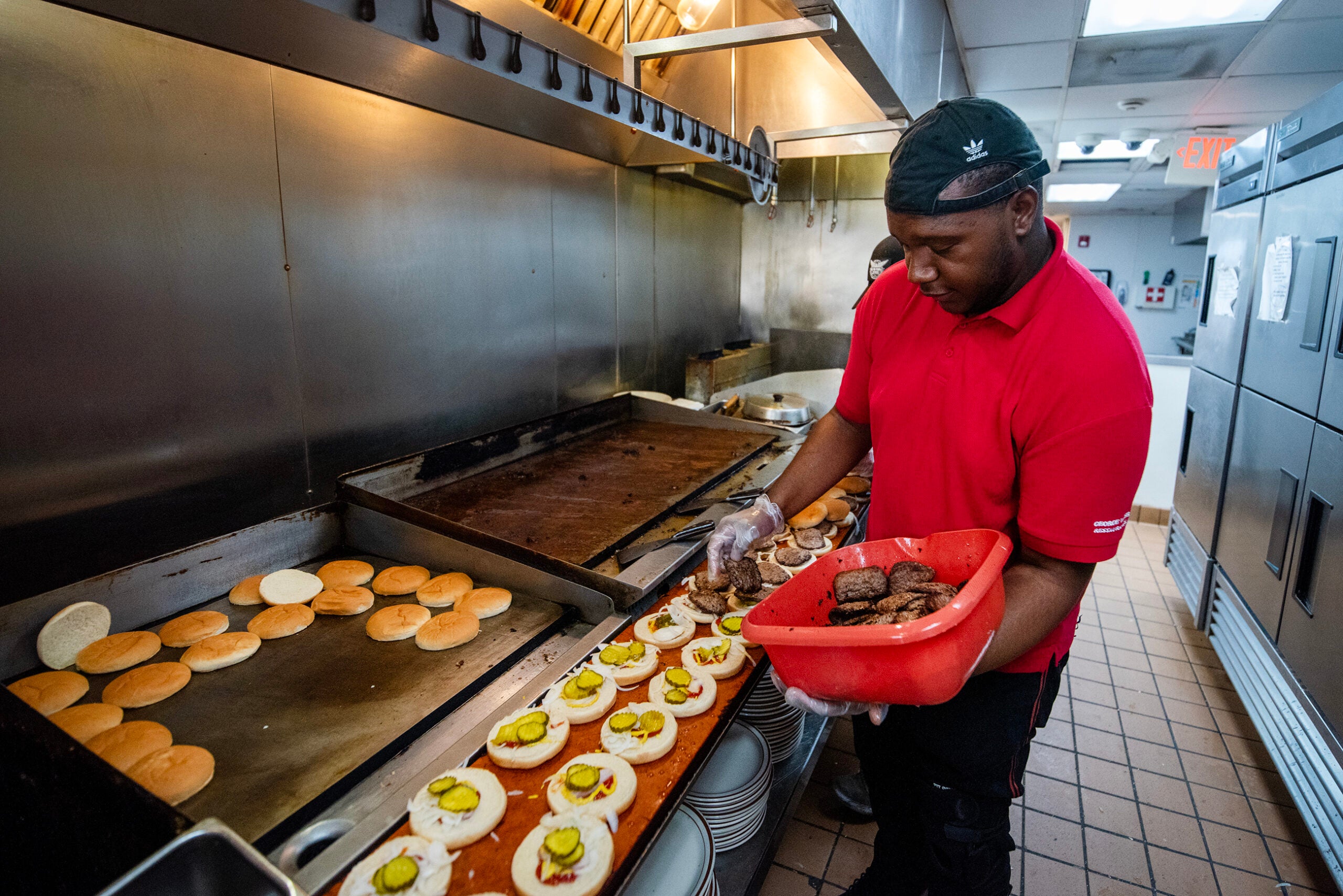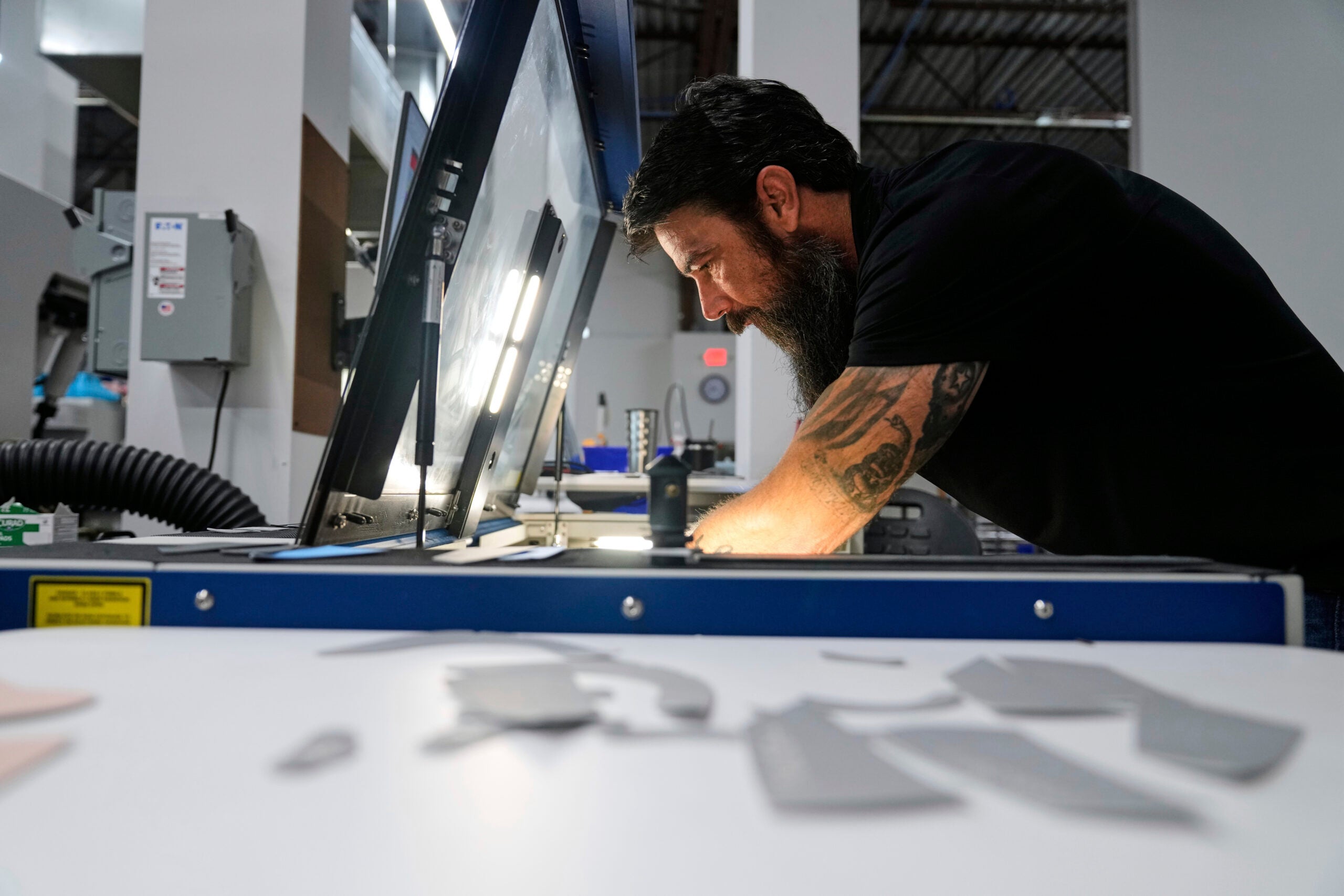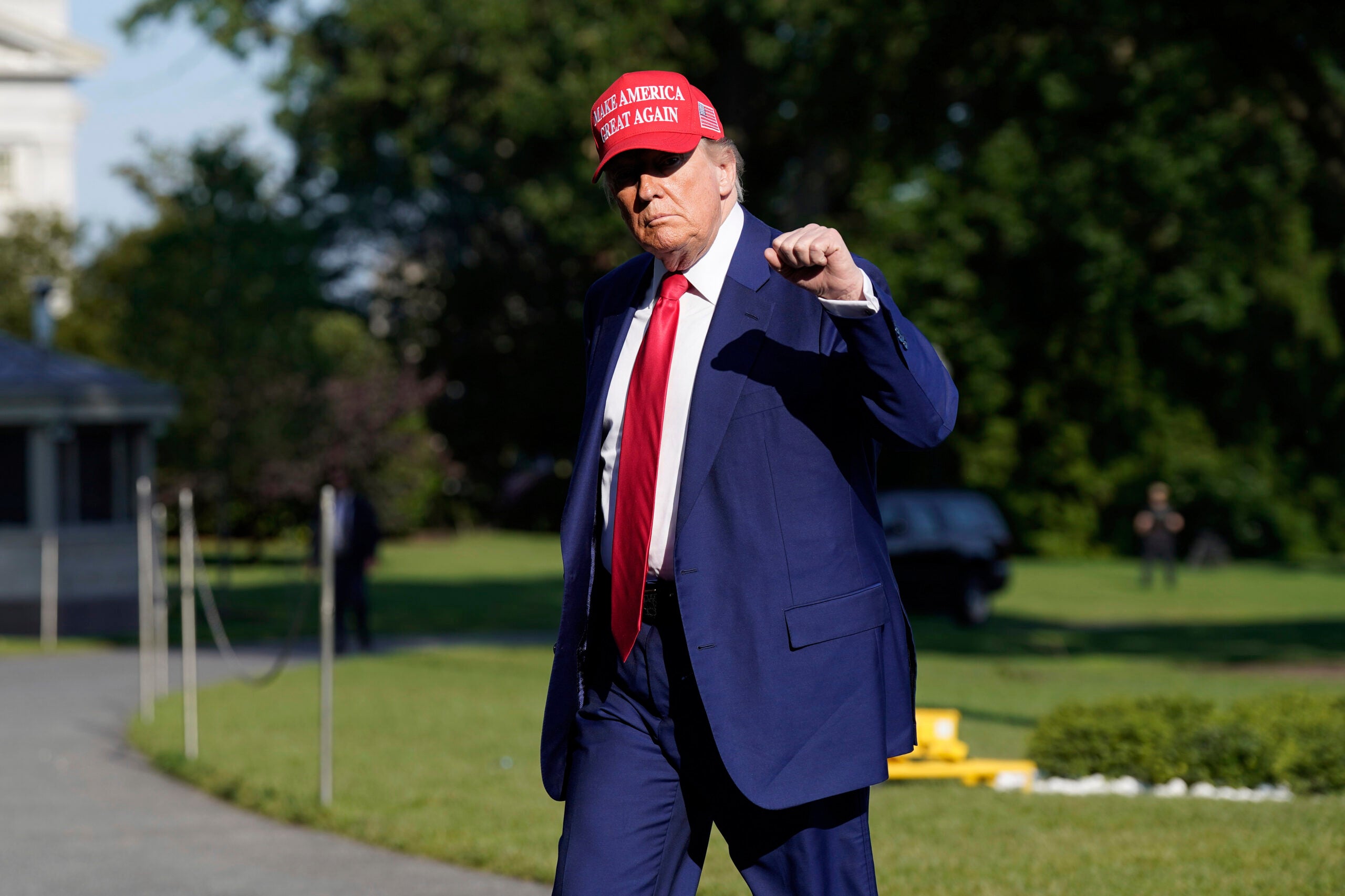As Oshkosh resident Lynn Reichenberger grabbed a cart and prepared to go grocery shopping at a local Pick ‘n Save last month, she held up coupons and said she looks for savings whenever possible.
Reichenberger doesn’t think the economy is particularly good or bad, but somewhere in between. She’s retired and lives on a fixed income, and said she has to set aside money for groceries.
Despite inflation, she said it’s important to her to go to restaurants and support local businesses.
News with a little more humanity
WPR’s “Wisconsin Today” newsletter keeps you connected to the state you love without feeling overwhelmed. No paywall. No agenda. No corporate filter.
“Me and my husband try to go at least once a week,” she said. “But even those prices are getting horrible.”
Shoppers who spoke to WPR outside the grocery store expressed a range of viewpoints on the economy, but for the most part said they were feeling a pinch from inflation.
Views of the economy are likely to factor into how Wisconsinites end up voting in November’s presidential race between former President Donald Trump and Vice President Kamala Harris, who have shared starkly different economic platforms.
In a Marquette University Law School poll released earlier this month, 37 percent of registered voters said the economy was their No. 1 issue. That poll showed that peoples’ views of the economy had improved compared to a year ago, but 63 percent of registered voters said it was either “not so good” or “poor.”
The results come amid some positive economic signs. The state’s unemployment rate has remained near record lows since 2022, and the share of Wisconsinites either working or looking for work has consistently outpaced the share nationally. Wages, on average, slightly outpaced inflation between 2019 and 2023, according to a recent Wisconsin Policy Forum report.
The workers who’ve fared the best in recent years were the state’s lowest earners, whose wage growth has outpaced Wisconsin’s highest earners, according to a recent report from the High Road Strategy Center, a worker-focused economic think tank at the University of Wisconsin-Madison.
Still, the overall negative views on the economy could represent one of Trump’s biggest political advantages as he looks to pin the blame for high prices on President Joe Biden and Vice President Harris. When Marquette asked voters which candidate would do a better job of handling the economy, just 42 percent said Harris while 50 percent chose Trump.
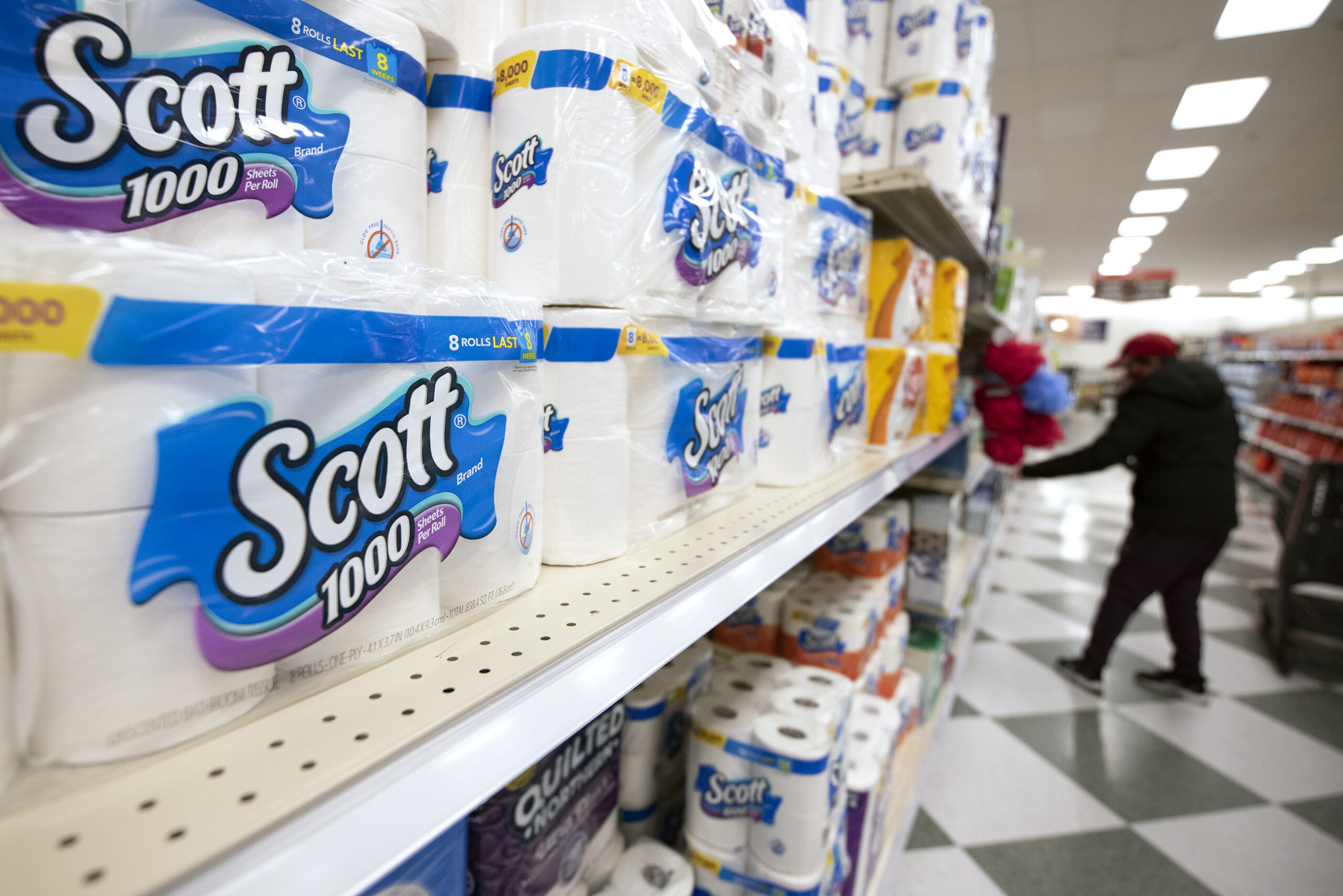
What drove inflation?
Menzie Chinn, a macroeconomist at UW-Madison, said some of the government support to consumers during the pandemic — by both the Trump and Biden administrations — coupled with jammed up supply chains when the American economy reopened helped contribute to inflation.
He said prices, especially for gasoline, were low during the pandemic because many were stuck at home and were not going out to restaurants or going on vacations. That created pent up demand among consumers, who were itching to spend as coronavirus restrictions eased.
At the same time, both the Trump and Biden administrations spent trillions of dollars in an effort to keep the economy afloat and then to help it recover from the pandemic recession, Chinn said.
Then, as people returned to work and resumed normal activities, supply chain issues limited the ability of businesses to import goods, creating an imbalance of supply and demand. Notably, Chinn said China’s “zero-COVID” policy restricted supply into 2022, well after most Americans had resumed their spending habits.
“If China decides that it wants a no COVID policy, well, it’s not within our power in the United States to stop them from doing that, even though that’s going to impede production in China, and impede loading the stuff that’s made in China that’s to be shipped to the US,” he said. “You got a collision of these supply and demand forces, you’re going to get inflation.”
He said there’s some disagreement among economists about how much of inflation should be attributed to pandemic-era spending and how much is the result of supply chain pressures. He said the general consensus is that both combine to contribute to roughly two-thirds of inflation, or about one-third each. But there’s debate around where the final third comes from.
One of the aspects of inflation that economists haven’t found consensus on is the idea that “corporate greed” drove inflation. The left-leaning nonprofit Economic Policy Institute reports a spike in corporate profits “contributed significantly to inflation” early in the pandemic recovery.
Steven Deller, a professor of agricultural and applied economics at the UW-Madison, told WPR that “there’s evidence” corporate greed did factor into inflation, pointing to recent price cuts from retailers and resaturants. But he also said the extent to which companies spiked prices to take advantage of inflation is “hard to tell.”
“You get 10 economists in the room, and you’re going to get 20 different answers,” he said.
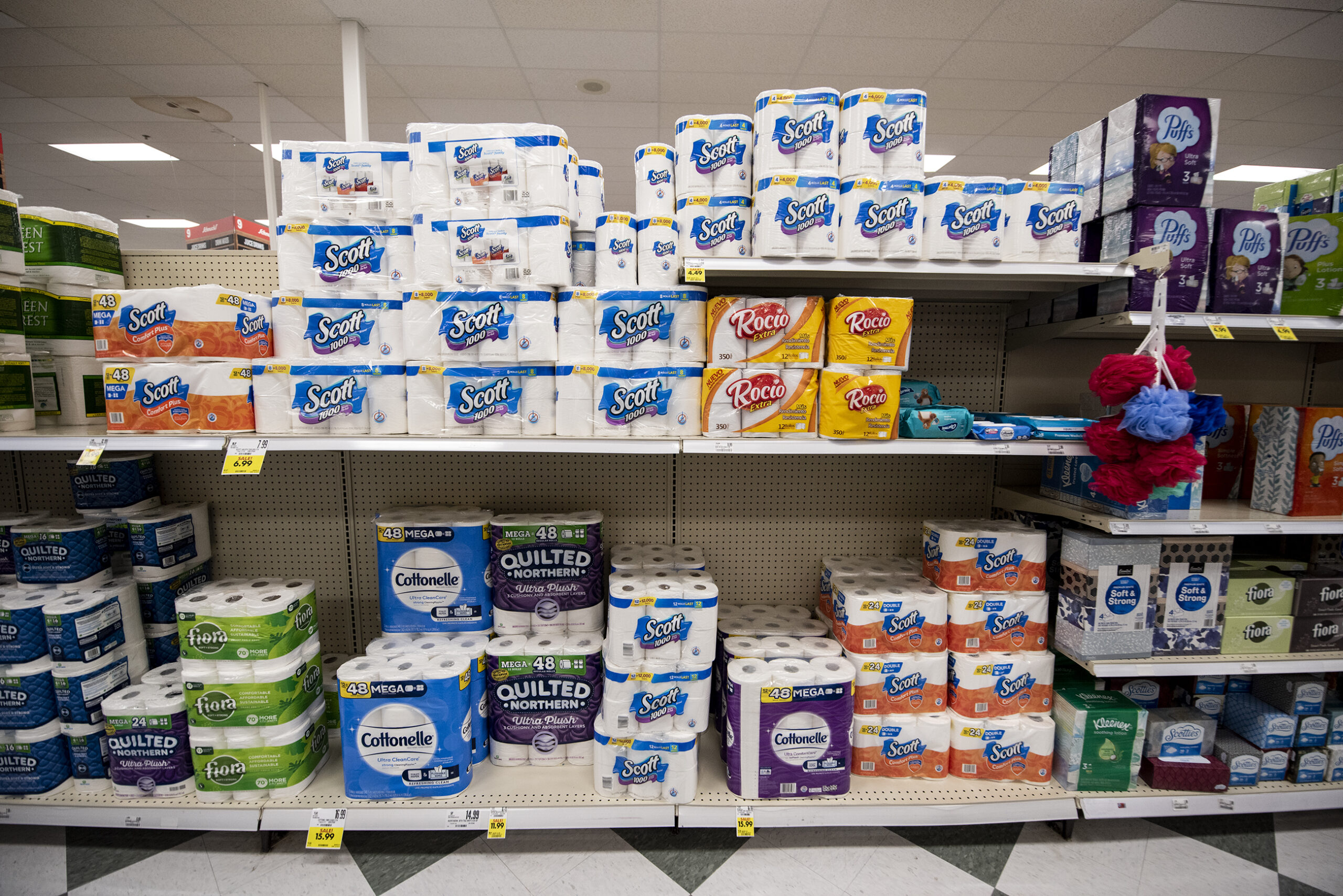
What are the presidential candidates’ plans?
Trump and Harris have both said they want to bring costs down for consumers, but they’ve offered starkly different visions for how to handle the economy.
Trump has proposed a 60 percent tariff on imports from China, and between 10 to 20 percent tariffs on all other imports. He also wants to extend and deepen the 2017 tax cuts on higher earners and corporations.
Harris has proposed cracking down on price gouging in the grocery industry, as well as expanding tax credits to small businesses, parents and first-time homebuyers. She also says she has a plan to build 3 million new homes over four years.
Trump’s plan has drawn criticism from economists, including Chinn, who say his tariffs would lead to higher prices for consumers. Chinn said Trump could impose tariffs without Congress by declaring a national emergency, while Harris largely needs Congress to implement her economic plan.
The investment bank Goldman Sachs also predicts stronger U.S. economic growth in the next two years if Harris wins the White House and Democrats sweep both chambers of Congress. If Trump wins, with either a Republican sweep in Congress or divided government, Goldman Sachs anticipates economic growth will take a hit next year from his tariffs and tighter immigration policies.
“Trump’s tariffs can have a big impact on the economy in a negative fashion by spurring uncertainty to higher levels or increasing inflationary pressures,” Chinn said.
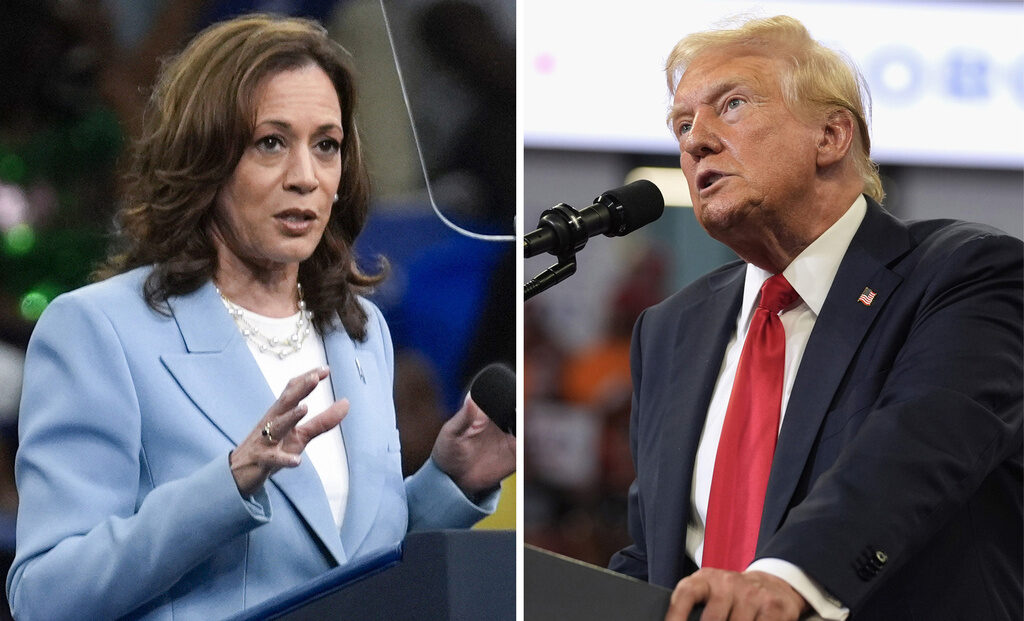
Wisconsin business, worker advocates weigh in
Kurt Bauer, president and CEO of Wisconsin Manufacturers & Commerce, the state’s largest business group, said tariffs are a tax and he’d “rather not see those things go into effect.” But he said he supports Trump’s proposal when it comes to cutting corporate taxes.
According to the Tax Foundation think tank, Trump wants to lower the corporate income tax rate from 21 percent to 20 percent and lower the tax rate to 15 percent for manufacturers making products in America. The Tax Foundation said Harris’ plan calls for increasing corporate taxes to 28 percent.
“The 28 percent that Harris is proposing will put us above the global average. That’s not where we want to be,” Bauer said, noting Harris’ proposal would still result in lower corporate taxes than before the 2017 tax cut. “Twenty percent makes a lot more sense, and I very much support what President Trump is proposing for manufacturers at 15 percent.”
Bauer also said WMC supports cutting government regulations on businesses, something Trump has often pledged to do on the campaign trail.
Meanwhile, organized labor groups have largely endorsed Harris, including the state AFL-CIO and the Wisconsin Teamsters union.
Laura Dresser, associate director of the High Road Strategy Center, said the Biden-Harris administration’s economic investments, through the Bipartisan Infrastructure Law and the Inflation Reduction Act, were “really important” pieces of public policy for the future of the economy.
Dresser expects that a Harris administration would maintain some of the gains workers have made through the Biden-Harris Department of Labor, stepping up efforts to address workplace safety, and the National Labor Relations Board making rules that make it easier to form unions.
She added that Harris’ proposals around creating an “opportunity economy” appear to be focused on growing and supporting the middle class.
“Those do feel like kind of a deep middle focus, making opportunity more real for more people, rather than an elite tax break at the top or trickle down approach,” she said.
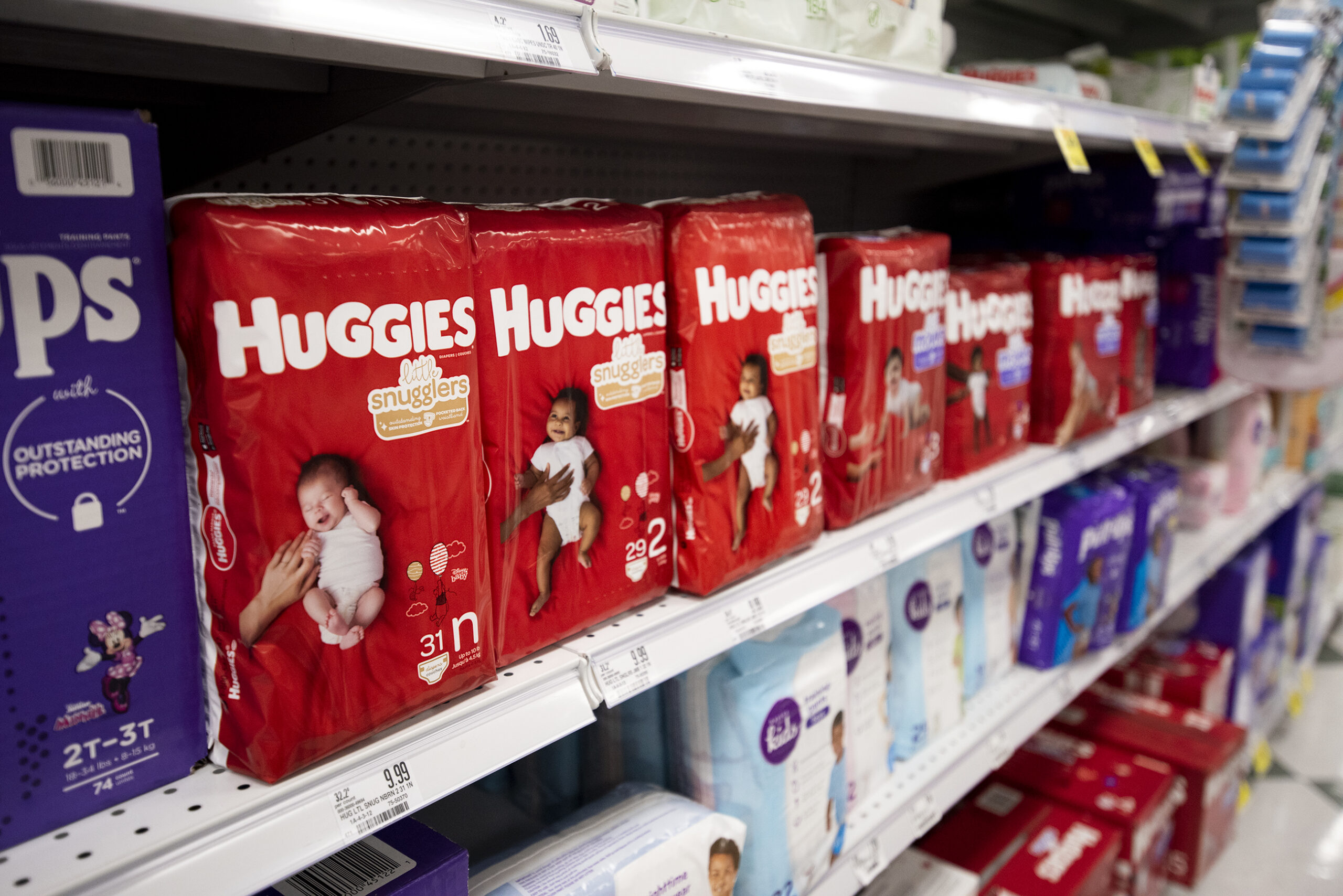
Wisconsinites are still feeling the pinch from inflation
But when it comes to the economy and politics, perception is everything. For many, Chinn said inflation is likely driving their concerns.
“It seems to be the case that this round of inflation has hit harder than unemployment in terms of people’s perceptions,” Chinn said. “And maybe that’s because we didn’t have high inflation for a long time.”
The rate of inflation fell to 2.5 percent in August, its lowest level since March 2021, and far lower than the peak rate of 9.1 percent in June 2022. While inflation has slowed, residents say they’re feeling the compounding effect of price increases in recent years.
“If you see the prices everywhere it’s going up,” Oshkosh resident Anton Oey said before grocery shopping last month. “The salary that we have, it doesn’t compare with the price increase at all.”
For certified nursing assistant Natalie Myrick of Oshkosh, it feels like prices “just keep going up and up.” Myrick said the economy “definitely can be better.”
“I’m working overtime to try and compensate (for) the increase in prices,” she said.
Retired teacher Lisa Zemlock of Oshkosh shared a more optimistic view, saying things are expensive but it feels like some prices are starting to come down.
“The big thing that I’ve noticed is people say they were so well off during COVID,” she said. “Well, it’s because we didn’t spend any money — we didn’t go anywhere.”
But Oshkosh resident Don Wymen said he believes the economy is “really bad” because “everything costs so much more” than it did prior to the pandemic.
“I got three bags of groceries (for) over $100,” he said. “It’s crazy.”

